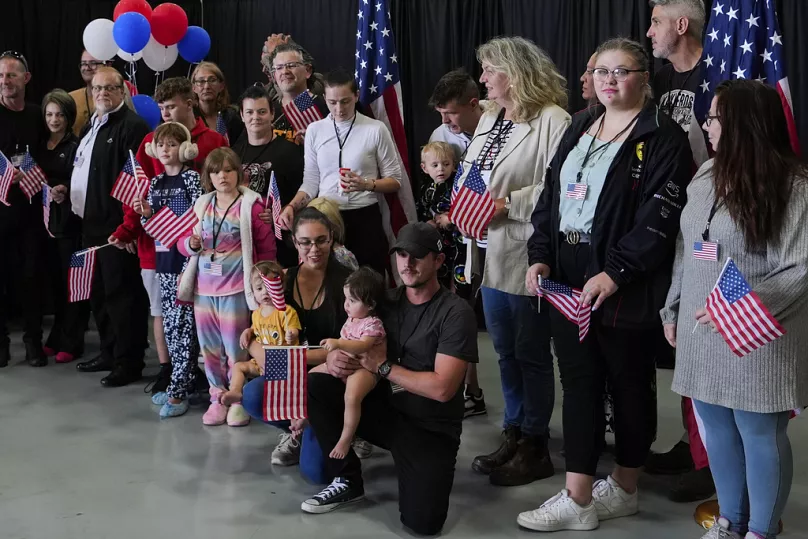President Cyril Ramaphosa has strongly criticized a group of 59 white South Africans who relocated to the US under refugee status, calling their decision “cowardly.” This marks a significant point in the ongoing tensions surrounding race and land reform in South Africa.
Background of the Controversy
The group of Afrikaners, who arrived in the US this week, were granted refugee status by President Donald Trump, citing fears of racial discrimination in South Africa. However, President Ramaphosa rebuffed their move, urging them to stay and resolve South Africa’s challenges rather than “run away.” Ramaphosa emphasized the resilience of South Africans in addressing the legacies of apartheid.
Trump’s Refugee Program for White South Africans
Donald Trump’s administration has supported the resettlement of these Afrikaners, claiming that they face violence and threats of persecution in South Africa. Trump and Elon Musk have often claimed that white farmers are subjected to genocide, a notion widely discredited by experts. In response, Ramaphosa dismissed these claims, stating that South Africa has never driven out its colonizers. (Source: BBC News)
Ramaphosa’s Remarks and Public Reaction
Ramaphosa’s comments about the group’s departure have sparked heated debates. He called their decision a “cowardly act,” arguing that true South Africans should remain and tackle the country’s issues directly. His remarks have divided opinion, with some accusing him of insulting the white community’s concerns, while others support his stance on confronting South Africa’s racial challenges.
The Growing Tensions Over Land Reform
South Africa’s controversial land reform policies have been a flashpoint in these tensions. In recent years, the government has introduced laws that allow for land expropriation without compensation, particularly targeting unused or underutilized land held by white farmers. While Ramaphosa insists no land has been seized, critics argue that the slow pace of reform has contributed to racial discontent. (Read more: Reuters)
What’s Next for the Afrikaners Who Moved?
Despite Ramaphosa’s assertion that the Afrikaners will return to South Africa, their resettlement in the US has already drawn attention. The group’s arrival was met with warm welcomes from US officials, further complicating the international narrative surrounding South Africa’s race relations and the political tensions with the US government.
Conclusion: A Deepening Divide
The ongoing debate highlights the complex nature of South Africa’s post-apartheid era. While some view the actions of white South Africans as fleeing an untenable situation, others see it as abandoning their responsibilities to the country. As the political and social fallout continues, the global community remains divided on the future of South Africa’s racial and land policies.


